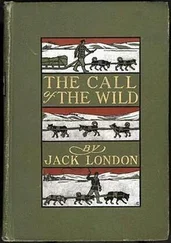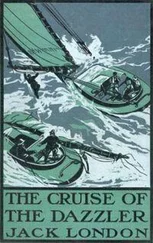Jack London - The Faith of Men
Здесь есть возможность читать онлайн «Jack London - The Faith of Men» весь текст электронной книги совершенно бесплатно (целиком полную версию без сокращений). В некоторых случаях можно слушать аудио, скачать через торрент в формате fb2 и присутствует краткое содержание. Жанр: Классическая проза, на английском языке. Описание произведения, (предисловие) а так же отзывы посетителей доступны на портале библиотеки ЛибКат.
- Название:The Faith of Men
- Автор:
- Жанр:
- Год:неизвестен
- ISBN:нет данных
- Рейтинг книги:3 / 5. Голосов: 1
-
Избранное:Добавить в избранное
- Отзывы:
-
Ваша оценка:
- 60
- 1
- 2
- 3
- 4
- 5
The Faith of Men: краткое содержание, описание и аннотация
Предлагаем к чтению аннотацию, описание, краткое содержание или предисловие (зависит от того, что написал сам автор книги «The Faith of Men»). Если вы не нашли необходимую информацию о книге — напишите в комментариях, мы постараемся отыскать её.
The Faith of Men — читать онлайн бесплатно полную книгу (весь текст) целиком
Ниже представлен текст книги, разбитый по страницам. Система сохранения места последней прочитанной страницы, позволяет с удобством читать онлайн бесплатно книгу «The Faith of Men», без необходимости каждый раз заново искать на чём Вы остановились. Поставьте закладку, и сможете в любой момент перейти на страницу, на которой закончили чтение.
Интервал:
Закладка:
He had displaced no agent; for the man that previously ran the post had made away with himself; “because of the rigours of the place,” said the assistant, who still remained; though the Toyaats, by their fires, had another version. The assistant was a shrunken-shouldered, hollow-chested man, with a cadaverous face and cavernous cheeks that his sparse black beard could not hide. He coughed much, as though consumption gripped his lungs, while his eyes had that mad, fevered light common to consumptives in the last stage. Pentley was his name-Amos Pentley-and Bonner did not like him, though he felt a pity for the forlorn and hopeless devil. They did not get along together, these two men who, of all men, should have been on good terms in the face of the cold and silence and darkness of the long winter.
In the end, Bonner concluded that Amos was partly demented, and left him alone, doing all the work himself except the cooking. Even then, Amos had nothing but bitter looks and an undisguised hatred for him. This was a great loss to Bonner; for the smiling face of one of his own kind, the cheery word, the sympathy of comradeship shared with misfortune-these things meant much; and the winter was yet young when he began to realize the added reasons, with such an assistant, that the previous agent had found to impel his own hand against his life.
It was very lonely at Twenty Mile. The bleak vastness stretched away on every side to the horizon. The snow, which was really frost, flung its mantle over the land and buried everything in the silence of death. For days it was clear and cold, the thermometer steadily recording forty to fifty degrees below zero. Then a change came over the face of things. What little moisture had oozed into the atmosphere gathered into dull grey, formless clouds; it became quite warm, the thermometer rising to twenty below; and the moisture fell out of the sky in hard frost-granules that hissed like dry sugar or driving sand when kicked underfoot. After that it became clear and cold again, until enough moisture had gathered to blanket the earth from the cold of outer space. That was all. Nothing happened. No storms, no churning waters and threshing forests, nothing but the machine-like precipitation of accumulated moisture. Possibly the most notable thing that occurred through the weary weeks was the gliding of the temperature up to the unprecedented height of fifteen below. To atone for this, outer space smote the earth with its cold till the mercury froze and the spirit thermometer remained more than seventy below for a fortnight, when it burst. There was no telling how much colder it was after that. Another occurrence, monotonous in its regularity, was the lengthening of the nights, till day became a mere blink of light between the darkness.
Neil Bonner was a social animal. The very follies for which he was doing penance had been bred of his excessive sociability. And here, in the fourth year of his exile, he found himself in company-which were to travesty the word-with a morose and speechless creature in whose sombre eyes smouldered a hatred as bitter as it was unwarranted. And Bonner, to whom speech and fellowship were as the breath of life, went about as a ghost might go, tantalized by the gregarious revelries of some former life. In the day his lips were compressed, his face stern; but in the night he clenched his hands, rolled about in his blankets, and cried aloud like a little child. And he would remember a certain man in authority and curse him through the long hours. Also, he cursed God. But God understands. He cannot find it in his heart to blame weak mortals who blaspheme in Alaska.
And here, to the post of Twenty Mile, came Jees Uck, to trade for flour and bacon, and beads, and bright scarlet cloths for her fancy work. And further, and unwittingly, she came to the post of Twenty Mile to make a lonely man more lonely, make him reach out empty arms in his sleep. For Neil Bonner was only a man. When she first came into the store, he looked at her long, as a thirsty man may look at a flowing well. And she, with the heritage bequeathed her by Spike O’Brien, imagined daringly and smiled up into his eyes, not as the swart-skinned peoples should smile at the royal races, but as a woman smiles at a man. The thing was inevitable; only, he did not see it, and fought against her as fiercely and passionately as he was drawn towards her. And she? She was Jees Uck, by upbringing wholly and utterly a Toyaat Indian woman.
She came often to the post to trade. And often she sat by the big wood stove and chatted in broken English with Neil Bonner. And he came to look for her coming; and on the days she did not come he was worried and restless. Sometimes he stopped to think, and then she was met coldly, with a resolve that perplexed and piqued her, and which, she was convinced, was not sincere. But more often he did not dare to think, and then all went well and there were smiles and laughter. And Amos Pentley, gasping like a stranded catfish, his hollow cough a-reek with the grave, looked upon it all and grinned. He, who loved life, could not live, and it rankled his soul that others should be able to live. Wherefore he hated Bonner, who was so very much alive and into whose eyes sprang joy at the sight of Jees Uck. As for Amos, the very thought of the girl was sufficient to send his blood pounding up into a hemorrhage.
Jees Uck, whose mind was simple, who thought elementally and was unused to weighing life in its subtler quantities, read Amos Pentley like a book. She warned Bonner, openly and bluntly, in few words; but the complexities of higher existence confused the situation to him, and he laughed at her evident anxiety. To him, Amos was a poor, miserable devil, tottering desperately into the grave. And Bonner, who had suffered much, found it easy to forgive greatly.
But one morning, during a bitter snap, he got up from the breakfast-table and went into the store. Jees Uck was already there, rosy from the trail, to buy a sack of flour. A few minutes later, he was out in the snow lashing the flour on her sled. As he bent over he noticed a stiffness in his neck and felt a premonition of impending physical misfortune. And as he put the last half-hitch into the lashing and attempted to straighten up, a quick spasm seized him and he sank into the snow. Tense and quivering, head jerked back, limbs extended, back arched and mouth twisted and distorted, he appeared as though being racked limb from limb. Without cry or sound, Jees Uck was in the snow beside him; but he clutched both her wrists spasmodically, and as long as the convulsion endured she was helpless. In a few moments the spasm relaxed and he was left weak and fainting, his forehead beaded with sweat, and his lips flecked with foam.
“Quick!” he muttered, in a strange, hoarse voice. “Quick! Inside!”
He started to crawl on hands and knees, but she raised him up, and, supported by her young arm, he made faster progress. As he entered the store the spasm seized him again, and his body writhed irresistibly away from her and rolled and curled on the floor. Amos Pentley came and looked on with curious eyes.
“Oh, Amos!” she cried in an agony of apprehension and helplessness, “him die, you think?” But Amos shrugged his shoulders and continued to look on.
Bonner’s body went slack, the tense muscles easing down and an expression of relief coming into his face. “Quick!” he gritted between his teeth, his mouth twisting with the on-coming of the next spasm and with his effort to control it. “Quick, Jees Uck! The medicine! Never mind! Drag me!”
She knew where the medicine-chest stood, at the rear of the room beyond the stove, and thither, by the legs, she dragged the struggling man. As the spasm passed he began, very faint and very sick, to overhaul the chest. He had seen dogs die exhibiting symptoms similar to his own, and he knew what should be done. He held up a vial of chloral hydrate, but his fingers were too weak and nerveless to draw the cork. This Jees Uck did for him, while he was plunged into another convulsion. As he came out of it he found the open bottle proffered him, and looked into the great black eyes of the woman and read what men have always read in the Mate-woman’s eyes. Taking a full dose of the stuff, he sank back until another spasm had passed. Then he raised himself limply on his elbow.
Читать дальшеИнтервал:
Закладка:
Похожие книги на «The Faith of Men»
Представляем Вашему вниманию похожие книги на «The Faith of Men» списком для выбора. Мы отобрали схожую по названию и смыслу литературу в надежде предоставить читателям больше вариантов отыскать новые, интересные, ещё непрочитанные произведения.
Обсуждение, отзывы о книге «The Faith of Men» и просто собственные мнения читателей. Оставьте ваши комментарии, напишите, что Вы думаете о произведении, его смысле или главных героях. Укажите что конкретно понравилось, а что нет, и почему Вы так считаете.







